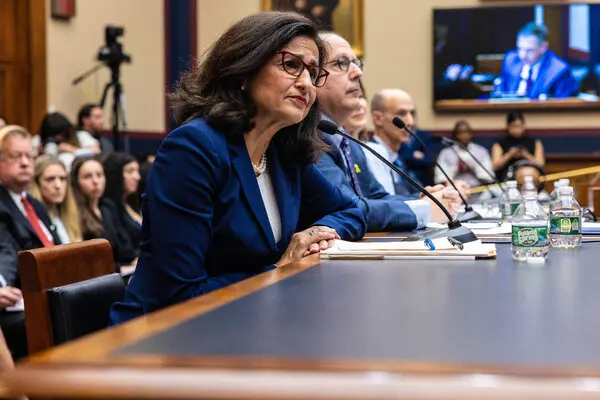In a landmark decision that followed hours of impassioned debate and public comment, higher education regents have approved a significant policy change aimed at addressing antisemitism on campus. The policy, which had been under intense scrutiny and discussion for several months, seeks to create a safer and more inclusive environment for Jewish students and faculty members.
The meeting, which stretched late into the evening, drew a diverse crowd of concerned citizens, students, faculty members, and representatives from various advocacy groups. Emotions ran high as individuals shared personal stories of discrimination and called for stronger actions to combat antisemitic incidents that have reportedly been on the rise.
Proponents of the policy change argued that it was a necessary step to protect the rights and dignity of Jewish community members. They highlighted troubling statistics indicating an increase in antisemitic graffiti, verbal harassment, and even physical assaults on university campuses nationwide. Supporters also stressed the importance of education and awareness in combating ignorance and hatred.
Opponents of the policy raised concerns about potential infringement on free speech rights. Some argued that the measures could be overly broad and might stifle legitimate criticism of Israeli government policies. They urged the regents to consider revisions that would balance the fight against antisemitism with the protection of academic freedom and open discourse.
After extensive deliberation, the regents voted in favor of the policy change. The new guidelines include mandatory training sessions on recognizing and combating antisemitism for all students and staff, stricter penalties for those found guilty of antisemitic actions, and enhanced support services for victims.
The decision was met with mixed reactions. Advocacy groups who had been pushing for stronger measures celebrated the outcome as a victory for human rights and social justice. Meanwhile, some student organizations expressed disappointment and vowed to continue advocating for adjustments to ensure that free speech is not unduly restricted.
As universities across the country face increasing pressure to address various forms of discrimination, this policy change by higher ed regents represents a significant step in acknowledging and responding to concerns about antisemitism. The effectiveness of this initiative will likely be closely monitored by educational institutions nationwide as they navigate the complex interplay between safeguarding minority rights and upholding freedom of expression.

